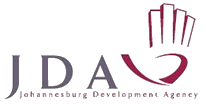Through the Corridors of Freedom, the City of Joburg has embarked on a comprehensive transformation of its spatial destiny, and a sharp break from its apartheid past.
More than R41.8-million has been set aside to redevelop sports facilities and other public amenities along Johannesburg’s Corridors of Freedom in 2014-15 as part of a drive to enhance the quality of life of the City’s residents.
This is over and above the more than R8-million the City spent on similar projects along these Corridors in 2013-14, bringing the total amount allocated to this project over the two financial years to around R50-million.
“The Corridors of Freedom are well-planned transport arteries linked to mixed-used development nodes with residential areas that are supported by office buildings, retail developments and opportunities for education, leisure and recreation”, says member of the mayoral committee for community development Chris Vondo.
This spatial development vision is aligned to the City’s Growth and Development Strategy 2040 (GDS 2040), and will enable residents to live closer to their places of work. This means they will live, work and play in the same space, thus being able to walk, cycle or catch a Rea Vaya bus.
Councillor Vondo says sports and recreational facilities will play a key role in the shaping of this new spatial development, “and in the past financial year, 32 facilities were initially identified for possible refurbishment, eight were approved by the Department of Development Planning, which is the custodian of the Corridors of Freedom on the basis that they would foster social inclusion and promote social cohesion”.
Ruimsig Stadium, a first-choice venue for international and national athletics events on the West Rand, will soon be back on track. The stadium’s athletic track is to be refurbished at a cost of R12-million to restore it to its original condition and reposition the facility as a world-class multi-purpose sports venue. R1.8-million has already been spent in the past financial year on repairs and maintenance of its ablution facilities, press rooms, soccer fields and floodlights.
Alexandra Stadium received R4-million to fix the facility and bring it up to standard with similar ones in the City; Noordgesig Swimming Pool received R997 500 for its upgrade; Yeoville Recreational Centre was allocated R655 000; Yeoville Swimming Pool R594 000; Newclare Swimming Pool R529 000; Noordgesig Library R502 000; Alexandra 3rd Avenue Library R500 000; and Blue Hall in Newclare R470 920.
The 2014-15 financial year expenditure – which represents a 500% increase over the previous financial year’s spend – will see the revamping of the Patterson Park and Sports Complex in Orange Grove, along the Johannesburg CBD-Alexandra Corridor, at a cost of R20-million. About R10-million will be injected into the refurbishment of Union Sports Complex in Newclare, and R6-million will be ploughed into the revamping of the Bosmont Sports Complex.
The Brixton and Bosmont libraries will be refurbished at a cost of R2-million and R1-million respectively, while another R1.8-million will be spent on Coronationville Swimming Pool and Library upgrades.
According to Vondo, the City has taken “steps to safeguard the investments from vandalism”, and where necessary, security measures such as fencing, lighting, burglar bars, security doors and CCTV cameras have been provided. He said that an even better security measure was community pride, responsibility and ownership.
Johannesburg is hard at work redressing the injustices of the past through projects, programmes and initiatives to make itself a safe, welcoming and properly run City for residents and visitors alike.
In his 2014 State of the City address, Executive Mayor Mpho Parks Tau said: “Through the Corridors of Freedom, we have initiated bold steps towards a comprehensive transformation of our spatial destiny, and a break from our apartheid past of spatial, social and racial segregation; a past premised on prejudice and division.”
Source: www.joburg.org.za

